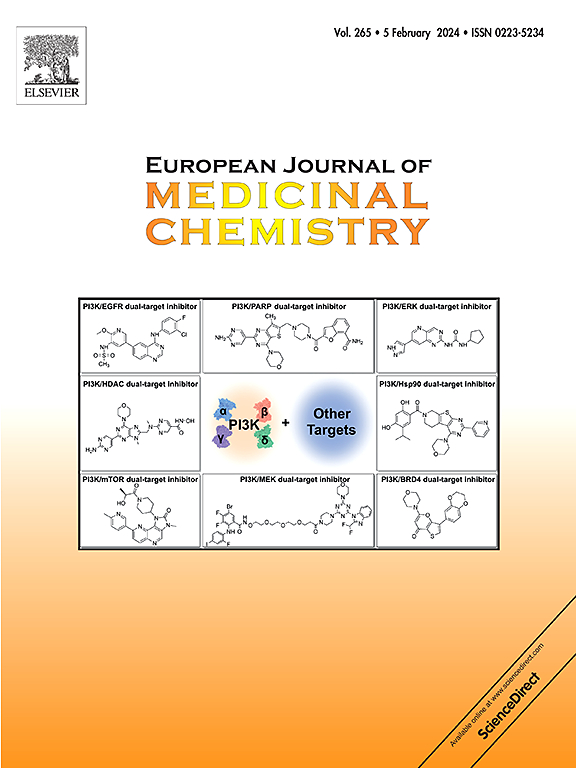Acetal functionalized iminosugars for targeting β-glucocerebrosidase modulation
IF 6
2区 医学
Q1 CHEMISTRY, MEDICINAL
引用次数: 0
Abstract
Novel pH-sensitive drug delivery systems offer significant potential for personalized medicine by enabling targeted therapy and minimizing side effects. These systems are designed to release therapeutic agents in acidic environments to achieve localized pharmacological effects. Dysfunctions in lysosomal enzyme β-glucocerebrosidase (GCase) play a crucial role in Gaucher and Parkinson's diseases. While pharmacological chaperones (PCs) stabilize GCase, the overall efficacy in restoring enzyme functionality is often abolished by their reluctance to dissociate from the enzyme once in lysosomes. To address this limitation, we developed pH-sensitive acetal functionalized iminosugars that hydrolyze under weakly acidic conditions, exploiting the pH difference between the endoplasmic reticulum and lysosomes to promote dissociation. Additionally, antioxidant moieties, derived from coniferyl aldehyde and vanillin, were incorporated to counteract oxidative stress, which is prevalent in Gaucher and Parkinson's diseases. The newly synthesized compounds 1–4 exhibit varying degrees of pH sensitivity and GCase stabilization in fibroblast ex vivo assays, with acetal 4 showing promising response, here validated both in lysates and in intact cells.


求助全文
约1分钟内获得全文
求助全文
来源期刊
CiteScore
11.70
自引率
9.00%
发文量
863
审稿时长
29 days
期刊介绍:
The European Journal of Medicinal Chemistry is a global journal that publishes studies on all aspects of medicinal chemistry. It provides a medium for publication of original papers and also welcomes critical review papers.
A typical paper would report on the organic synthesis, characterization and pharmacological evaluation of compounds. Other topics of interest are drug design, QSAR, molecular modeling, drug-receptor interactions, molecular aspects of drug metabolism, prodrug synthesis and drug targeting. The journal expects manuscripts to present the rational for a study, provide insight into the design of compounds or understanding of mechanism, or clarify the targets.

 求助内容:
求助内容: 应助结果提醒方式:
应助结果提醒方式:


